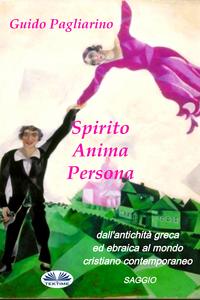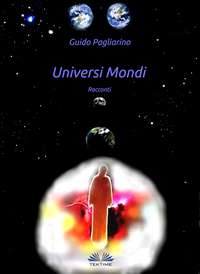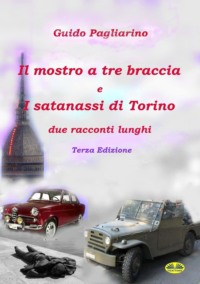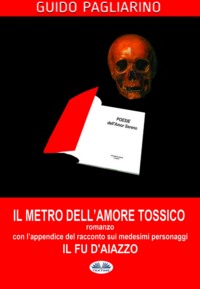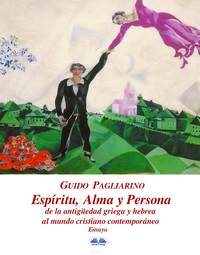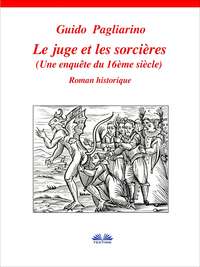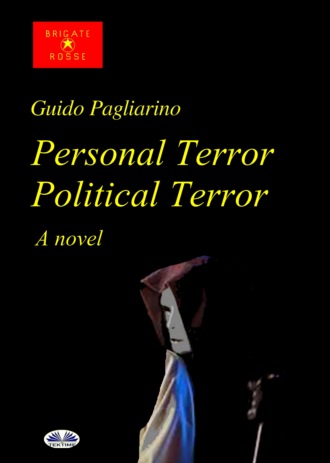
Полная версия
Personal Terror Political Terror

Guido Pagliarino
Personal Terror Political terror
A novel
Translation by Barbara Maher
Guido Pagliarino
P ersonal Terror Political Terror
A novel
Translation from Italian to English by Barbara Maher
Tektime Dist r ibution
Copyright © 2021 Guido Pagliarino – All rights belong to the author
Original work in Italian:
Il Terrore Privato Il Terrore Politico – Romanzo - Written between 2006 and 2009
1st Edition, in hard copy and in various electronic formats, Copyright © 2012-2013 GDS Editions
2nd Edition, in hard copy printed by Create Space, and in e-books of various formats edited by the author, Copyright © 2016 Guido Pagliarino
3rd Edition, in hard copy and in e-books of various formats, Tektime Distribution, Copyright © 2017 Guido Pagliarino
The cover of this book was designed electronically by Guido Pagliarino, Copyright © of the Author
Apart from persons appearing in news stories and history, the characters, events, people’s names and surnames, the names of organizations and businesses and their locations, which appear in the novel, are imaginary. Any references to real or judicial persons and, in general, to past and present reality are involuntary.
Index
Guido Pagliarino Personal Terror Political Terror Novel
Chapter1
Chapter 2
Chapter 3
Chapter 4
Chapter 5
Chapter 6
Chapter 7
Chapter 8
Chapter 9
Chapter 10
Chapter 11
Chapter 12
Chapter 13
Chapter 14
Chapter 15
Chapter 16
Chapter 17
Chapter 18
Chapter 19
Chapter 20
Chapter 21
Chapter 22
Chapter 23
Chapter 24
Chapter 25
Chapter 26
Chapter 27
Chapter 28
Guido Pagliarino
Personal Terror Political Terror
A n ovel
Chapter 1
The Ear Monster, as the media would quickly have nicknamed him somewhat grotesquely, had committed the first murder on a morning in late September 2000. The victim was a wealthy woman, Maria Capuò Tron, a 52-year-old housewife married to a hospital doctor, killed in their hilltop villa in Turin, in Mongreno Street, while her husband Amilcare was on duty and the family’s domestic help had gone out to do some errands. The couple had no children. The housekeeper, a legal Filipino immigrant, had found the body lying on the floor of the bedroom when she returned. As the autopsy would later ascertain, the victim had not been raped or tortured in any way, but killed quickly, albeit atrociously, by a sharp blow into the ear with an ice pick, which perforated her cerebrum. There was no sign of disarray in the house.
The widower had called the police after the housekeeper had telephoned him at the hospital. He had rushed home and dialed 113.
According to the initial investigations, the murderer could have entered the house through one of the windows on the ground floor, left open on that late-September day still enjoying a taste of summer, after climbing over the wall surrounding the cottage.
The killer, and this would be the only time, had taken some jewelry from a box inside a chest of drawers in the room where the crime had taken place. According to the insurance company, it had an estimated worth of three hundred million lire, or over one hundred and fifty thousand euros today.
In view of the theft, the maid had been the prime suspect, at the very least as a possible insider. With the authorization of Dr Marcello Trentinotti, Deputy Public Prosecutor assigned to coordinate the investigation, the woman had been detained the next morning, taken to Police Headquarters and questioned by Deputy Commissioner Evaristo Sordi. He had been charged with the investigation into the crime by the head of the Homicide Department of the Squadra Mobile, Deputy Commissioner Giandomenico Pumpo. As he would later report to the magistrate, Sordi had released the woman towards evening because of a total lack of evidence.
A few days later, a new crime had completely exonerated her, and the different lead of a serial killer was being explored.
Although he had retired in 1984, my dear and only friend Vittorio D'Aiazzo, Emeritus Police Commissioner, had wanted to work on the case in collaboration with the Police as an informal consultant, as he had already done for some particularly interesting cases after his retirement.
Vittorio would turn eighty-two on April 30, 2001, but age had not made him lose his verve. For him, it was not only an intriguing pastime so he could still feel active, but he was "doing a good service to others" as he had once told me, "a service that I want to continue doing to help make this amoral society a little less unjust and, perhaps, make my neighbor a little less unhappy". It was one of his ways of obeying that precept of love which he had tried to implement, I imagine, his whole life and, certainly, since I had met him in the now distant 50s of the bloodthirsty and blood-filled twentieth century that was coming to an end without the promise of any improvement for the next millennium.
I admired the existential faith of my friend, which had very little to do with religion, if with this word we conventionally mean subservience and duty, full of liturgical obligations, to a very powerful and pretentious God, immune from human suffering: it was a faith that he expressed concretely in doing good for others, following the example of his tormented evangelical Master who, according to Vittorio, had spoken about God’s loving feeling in the world. "Of course," he had said to me once, "when a person treads the path of love in regard to one's neighbor, as far as he is able, it is impossible that it doesn’t continue after death, in Eternal Love."
Unfortunately, unlike my friend, I was not and am not a believer; I say unfortunately because, being no longer a young man, I think more often of death and its putrefaction than I did in the past and, if is there is only nothing after our last breath, the tragic futility of life. In any case, it had been precisely this pessimistic feeling that, from a young age, led me to that same desire for justice that drove my friend, even if for me it was a justice that could only be earthly. Convinced as I was that in the cosmic tragedy in which I had a part, complete solidarity between humans was at least indispensable according to the ethos I considered timeless, which every person honors, I had the highest disdain for those who consciously curtailed the gift of life of others, already so brief, and towards violent people in general who caused anguish to human beings during the few years on earth which they were granted.
And I completely agreed with Vittorio when he said that, since the ‘60s of the XX century, civility had been brutalized little by little as many of the traditional philosophical-social or religious ideals weakened and were finally lost. Thus the life of those very people had become simply putting their own selfishness into practice, according to what my friend called the rule of I do as please if it’s seems convenient for me.
Vittorio had made rapid advances in his career from the early 1970s, and had been promoted to Deputy Commissioner at an early age. Then, unfairly, nothing further. He had automatically moved to a higher level only on the day he retired with the pension of Commissioner, as regulations required.
My friend had neither family nor next of kin: he had been a widower with no children for a long time. I was a bachelor who was equally alone, and we felt like brothers.
I’m Ranieri Velli - they call me Ran - journalist and writer and, in the 50s and 60s of the last century, I was a colleague with the rank of deputy sergeant of the then Commissioner Vittorio D'Aiazzo in the Public Security Guards Corp.
I was the younger of the two, just sailing along, let’s say, towards sixty-eight, with a birthday the following 1st of August 2001. Like Vittorio I was already receiving a pension, although I had not ceased my activity as a columnist in the daily press. In the distant past, when there were still no faculties of Communication Sciences and even a non-graduate could become a journalist after the usual internship, I had worked at the glorious Gazzetta del Popolo, a Turin newspaper that, after stops and starts in its last decade of life, had ceased publication altogether on December 31, 1983. So I had moved on to another newspaper, La Gazzetta Libera, founded the following year. It had nothing to do with the previous homophonic daily, even though it too had been created as counterpoint in Turin to the immortal La Stampa which, in essence, meant FIAT. Thanks to the subsidies of an economic group that had an interest in it, the new Gazzetta, even though it never reached the same circulation numbers of the previous one, was still viable at the start of the twenty-first century.
Though Vittorio was my only friend, he instead had more than one, even it they were not as close. Evaristo Sordi could also call himself one of Vittorio’s friends despite not having frequented him socially. Years before, he had been his side-kick in the Homicide Section of the Squadra Mobile after I, his predecessor and part-time writer, had tendered my resignation to devote myself entirely to writing. Evaristo had arrived at the highest career level for a non-graduate and was a senior inspector of sUPS (sostituto Ufficiale di Pubblica Sicurezza, meaning deputy Public Security Officer), commonly called "deputy commissioner" and performing those duties. Not much younger than I, and not far off retirement, the man sported an impressive grey mustache for a long time and despite his age still had a lot of hair, which was salt-and-pepper too. He was a robust figure, just like my friend Vittorio who, unlike Evaristo, was not a very tall man. I was the tallest of the three by quite a bit, almost six feet two, and I had always been very thin although, unfortunately, in recent years I had become a little hunched because of my bad habit, common in tall people, of bending down to the many interlocutors of lesser stature, starting with Vittorio himself.
Vittorio had learned of the first crime from the evening news on television and the following morning had read about it calmly in our newspaper, in an article by the chief crime editor Carla Garibaldi, an unmarried colleague in her forties. She was a woman about five feet eight tall and because of the excessive amount of body building which she "carried out daily" as she had told me, had arms and calves, and probably thighs, a little too muscular for my tastes of an old fashioned kind of man. A protruding jaw and a nose which was too small for the shape of her considerably broad face made her quite ugly. On the other hand, she was a person of great culture with a frank and self-effacing character, and I got along well with her, unlike certain entitled brats on our newspaper.
Just as for cases in the past, by way of me, there had been an exchange of information between Vittorio and Carla, and vice versa which all things considered was to her advantage because my friend was usually in possession of first-hand information, given that he often visited Sordi at Police Headquarters. He had already had crucial clues from the retired commissioner in previous cases, so it was not only out of respectful friendliness that she often welcomed Vittorio into her office and, at times, to the crime scenes themselves and listen to his opinions. In the case of the Ear Monster too, she had very willingly kept Vittorio close.
My friend sometimes went to visit another of his former employees, Deputy Commissioner Giandomenico Pumpo who, after a period as Chief Commissioner leading a special department that dealt with magic, esoteric, pseudo-religious and satanic groups, the ACT, Anti Sect Team, sat in the very place that had once been D'Aiazzo’s. Although not as close a friend as Sordi, Pumpo also allowed the old policeman to extract some news out of him now and then which was useful for his parallel investigations.
Chapter 2
The second crime took place five days after Mrs Capuò Tron had been murdered, in October at that point. The victim was Giovanna Peritti Verdani, a 60-year-old widow and pensioner who lived alone in an apartment on Corso Agnelli inherited from her husband. She had a daughter but she was married and lived in Asti. She infact had discovered the body, shortly after 10:00pm of the same day of the murder.
It was her custom to phone her mother every evening, but had not had an answer that time, even though the phone had rung many, many times from 7:30pm onwards; and shortly after 9:00pm the daughter, very worried knowing that her mother never went out after dark, had jumped in the car and had come to Turin. Arriving about an hour later in front of her mother's building and after buzzing uselessly on the intercom, she had let herself in with the spare key she had with her, had gone upstairs and opened her mother’s apartment, which was closed with only a half turn of the lock, as she would later tell the police.
After turning on the light, she had made the gruesome discovery of her mother lying dead on the floor in the entry hall, with her mouth gaping in a grimace of pain, her eyes wide open, blood and brain matter spilling from one ear and a large hematoma on her head.
It would be established that the bruising had been caused by a heavy domestic vase being dropped onto the head, and on which the anatomo-pathologist would find traces of the victim's scalp. The doctor would also determine that, in all certainty, death was due to an ice pick pushed into the ear until it pierced the brain.
The dead woman’s daughter, who barely had time to drop onto a chair, had fainted. When she came to her senses around 10:10pm as she had ascertained on her wristwatch, she had managed to call 113 even though she was still in shock.
Around 11:00pm I had phoned Vittorio on my mobile phone to let him know about the new murder, fulfilling his request to inform him of any developments which might have arrived at the newpaper. Carla Garibaldi had told me about the new crime when I went past her computer station on the way to my desk. She had just had a phonecall from a colleague who, as a rule, hung out in the atrium of the Police Headquarters in the evening and into the early hours of the night, along with colleagues from the city’d other newspaper and the television stations, waiting for crime news. Carla's deputy had then rushed to the scene of the crime with the others, to give his boss any news.
Vittorio had Evaristo Sordi’s cell phone number, and had learned from him that he was at the scene of the crime. He said that the body had not yet been removed, pending the imminent arrival and authorization of the Public Prosecutor Trentinotti for transfer to the morgue for the necroscopy. Sordi had given my friend permission to enter the dead woman's apartment by mingling with the journalists.
He had never had a drivrer’s license and travelled thriftily around the city by tram, but given the hour and the urgency, he had taken a taxi that time. It had been a waste of time and money, though, as he had arrived on the landing outside the dead woman’s apartment when not just the journalists, including Carla's deputy, had moved on, but the coroner, the magistrate and the commissioner had left too. The commissioner had taken the deceased woman’s daughter with him in the service car to officially take down and record her testimony at Police Headquarters. The body was already en route to the morgue. The only people still there were two officers who were putting seals on the door and their deputy superintendent. Knowing D'Aiazzo, he had greeted him cordially; perhaps he should not have done so, but he had also offered to take him to Police Headquarters in his patrol car, an offer which he was not about to refuse, considering that it was close to his home and quite late.
The next day, during his usual stroll under the colonnades of Via Cernaia, Corso Vinzaglio, Corso Vittorio Emanuele and vice versa, he had decided to call into Police Headquarters on the way back. He had asked for Commissioner Sordi, in the hope that he would be there.
He was, and had received him.
Without any preambles, Evaristo had said to him: "I had to leave before you arrived last night... you did come, didn't you?"
"Yes siree."
"I'm sorry, Vittorio, but the magistrate had ordered us to get out and seal up before you arrived. I couldn’t wait for you, as I had to leave with others and take the witness who had found the body with me, the dead woman’s daughter, to make her statement in writing."
"No problem. If you want to, tell me something about this daughter."
"Nothing suspicious about her. In fact it seems from the testimonies of the mother’s neighbors and, furthermore, from the daughter’s neighbors who were questioned just a short time ago by our people in Asti, where she lives with her husband and two children, that the pair of them were very close; as a matter of fact, the daughter and son-in-law often invited the mother to their home, he or she would come to pick her up by car here in Turin so she didn’t have to go back and forth by train, and then they would take her back at the end of the day."
"I see. That poor woman must be feeling a lot of grief."
"Yes, she was heartbroken. Apart from that, since I couldn't wait for you last night, to make up for it I'll tell you everything I know now. First of all, unlike the Capuò Tron case, the murderer entered through the door and not a window because, as you know, the apartment is on the third floor. Furthermore, nothing was stolen this time, at least according to the dead woman’s daughter: perhaps the something disturbed the killer before he could rummage around and steal, and he slipped away quickly pulling the door closed behind him, and it was closed with only one turn (Translator’s Note: locks on doors in Italy have up to five turns and sometimes also vertical bars floor to ceiling are actioned). But perhaps the most important news concerns the victim’s profile: I checked on whether Peritti Verdani was pigeon-holed in our archives and I found records concerning her... in the DIGOS1 office.”
"Well, how about that! Hmm... whereas the first victim...?"
"No, nothing, Mrs Capuò Tron was an angel, poor woman, and had never had any dealings with us at all. But Peritti was a very different kettle of fish, at least in the past, because then she must have calmed down. In the early 1970s, before she married to Verdani, she was a blue-collar worker at FIAT and had been threatened with dismissal several times because of serious union excesses versus non-communist co-workers and against the foreman, we might also say excesses of a revolutionary kind. That Peritti woman was known by the nickname of Pasionaria in the Marxist-Leninist environment, just like the old Dolores Ibarruri of the Spanish Civil War, la Pasionaria di Mirafiori 2 to be precise. Warnings from the company owners led up to her being sacked. But under the so-called Workers' Statute3 , they had to have just cause, as it was called, meaning that if the person who’d been sacked challenged the dismissal, there had to be a reason which an employment tribunal recognised as valid."
"All things considered, it would have been a good law in normal times, but not for those revolutionary years."
"Yes, Vittorio, in fact at that time, as you know, labor judges recognized the just cause only in really extreme cases and Peritti was almost untouchable. It was only in the mid-1970s that the proprietors finally managed to throw her out after a favorable judgment, thanks to an event which was more serious than the previous ones: during one of the many violent protests at the factory gates, she had physically hit her foreman, after she and other trouble-makers had forced him to take part in it."
"Far from being new to stunts of this kind, la Pasionaria had hit him twice with the pole of the red flag she was holding, once on his shoulder and another much more serious blow on his head, that sent him to the hospital unconscious with a lacerated scalp. Unfortunately for her, that time she had carried out the daring feat in front of one of our platoons on public security duty and they had detained her, not without difficulty by the way, as is evident from the report on file, and brought her here to Police Headquarters. They had taken her personal details and she was charged with resistance."
"She had later been sued by the foreman and with one thing and another had been handed a conviction, albeit with parole. What’s more her termination payout had been seized at the request of the injured person's lawyer and had been used to compensate the victim. But above all, to their great satisfaction, the proprietors had been able to kick out that new Ibarruri.
"Our DIGOS agents had continued to keep an eye on her, of course. It was during the years of terrorism and Peritti had exactly the right profile to be suspected of sympathizing with the Red Brigade and the like. From the archive it also appears that, after a short period of unemployment, she had been hired as a warehouse worker at a company manufacturing shower doors and that a few years later she had married a wealthy itinerant fruit and vegetables merchant, and went on to assist her husband in the business. From that moment, smile! from the communist that she had been she became, as everyone knows, a Christian Democrat."
"There's not much to smile about, Evaristo, you know how ideals work in many people. But tell me one thing: would you rule out a political vendetta by someone? Maybe some former comrade, seeing that she had changed sides?"
"A deferred vendetta? Well, you can’t rule it out completely, but a political punishment postponed for so many years doesn’t seem very likely to me and, what’s more, the murder was carried out in the same way as Capuò Tron’s who instead was a tranquil middle-class housewife: it really seems to be the work of the same brain-piercing maniac."
"But you can’t rule out completely that the second killer is someone else and deliberately killed in the same way to deviate suspicions."
"I know, we’ve thought that too, but we think we’ll follow the hypothesis of only one psycho first, and if there are other similar cases, that will confirm it."
"Unfortunately, you should add."
Chapter 3
A third murder, two days after the conversation between Evaristo and Vittorio, had confirmed the suspicion that it was a homicidal maniac, and the media and therefore the public had now dubbed him The Ear Monster.
The victim, 55-year-old housewife Margherita Piccozza Ferini, was the wife of a senior bank employee. This couple too, like the first crime, had no children. They lived in an apartment which they owned in a building in Lungo Dora Voghera. The husband of the slain woman had made the gruesome discovery when he came home from work around 6:00pm and he had alerted 113. The corpse had a noticeable hematoma on the head, like in the second case; this time, however, the blunt instrument had not been found, so the killer must have taken it away with him: the coroner would establish that it was a hammer.


